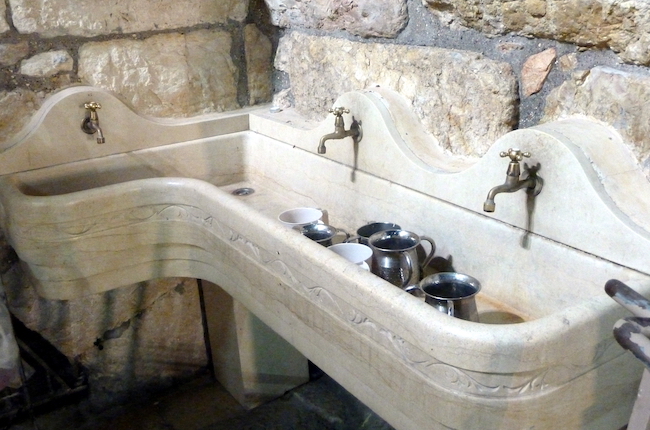In the last sections, we cited a number of practical halachos that stem from the Zohar’s statement that the nature of the mitzvah is to remove a harmful impure spirit. Most authorities agree that one recites a blessing of netilas yadayim only when doing a mitzvah, e.g., washing for bread. Washing away an impure spirit is only a protective measure and not a mitzvah, and the Zohar’s reason for netilas yadayim is not sufficient to obligate us to recite a berachah on netilas yadayim.
The Rashba and Rosh offer other reasons why netilas yadayim every morning is a mitzvah and not just a protective measure. It is because of these other reasons that we recite a berachah on netilas yadayim each morning (Pri Megadim, Eshel Avraham 4,1; Mishnah Berurah 4,8). Familiarity with these reasons helps us understand many of the halachos of netilas yadayim. The Rashba associates this washing with the renewal of our life force each morning. Just as a kohen had a mitzvah to purify himself before starting his service in the Temple, we also have a mitzvah to wash our hands each morning. In doing so we are purifying ourselves before we start a new day of Divine service (Responsa 1,191).
The Rosh cites a different reason for this mitzvah. He writes that there is a mitzvah to wash our hands before each regular prayer, lest we had touched a place on the body that is generally covered. Preparing oneself for tefillah is considered to have the status of a mitzvah, and we therefore recite a blessing (4,2).
One practical difference between these two approaches is presented if one sleeps during the day. If the reason for washing is that one becomes a new creation after a full day passes, this will not apply to a nap during the day. Conversely, if the reason for washing is that one’s hands may have touched a covered place, this is equally possible during a nap. If a person slept for half an hour or more, he should wash without a berachah (Shulchan Aruch 4,15).
Another practical difference arises if one stays awake all night. Since a full day has passed, it is possible to say that he is considered a new creation. However, if the reason for netilas yadayim is that one might have touched a covered place while sleeping, the absence of sleep suggests there will be no obligation to wash (Shulchan Aruch 4,13). The ruling is that he should wash without a berachah, unless he uses the restroom before tefillah, in which case he can recite the berachah (Mishnah Berurah 4,30).
Text Copyright © 2013 by Rabbi Daniel Travis and Torah.org


